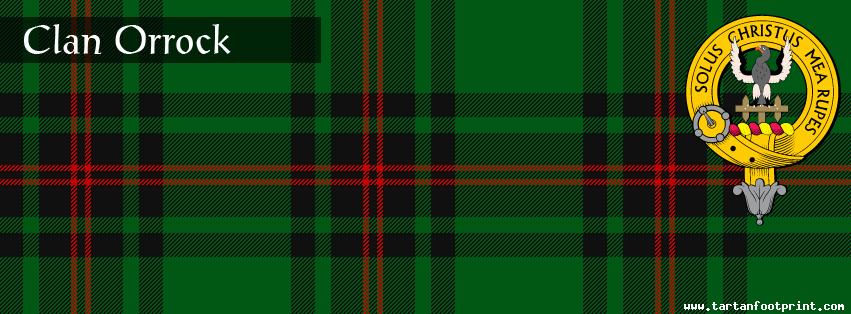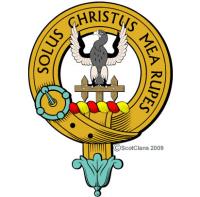
Clan Orrock
The name Orrock, also seen spelled Orrok, and Orrick, is taken from the lands of Orrock in Fife.
A quit claim by Johannes Gallard of the lands of Siwinis Keeth to Dunfermline Abbey was witnessed by Symon de Oroc in 1248.
With the consent of his son Robert, and his brother Freskinus, Symon filius Simonis de Oroc gave the abbot and convent of Dunfermelyn (Dunfermline) the lands of Muyoch and Cnokduuy in the tenement of Oroc.
In 1296, Robert de Horock, or Horok, was a juror on an inquisition on the lands of Disarde (now Dysart, in Fife). Robert was a juror again nine years later, in 1305, along with Simon de Horok.
In 1296 Symon de Orrok of Fife and Robert de Orrok, also of Fife, both signed the Ragman Roll, and thus pledged their allegiance to England's Edward I.
Symon de Oroc, or Orock, along with his father Robert attested the homage of Duncan IV, the twelfth Earl of Fife in 1316 to the abbot of Dunfermline.
There is record, in 1513, of a payment in Aberdeen by a David Arroc, and, in 1578, John Oraik is mentioned in Craig Beath.
Land in Aberdeenshire was bought by the family of Robert Orrock around 1800 and named Orrock "in memoriam" after he sold the lands of Orrock in Fife fifty years previously, in 1750.
Several people of the name Orrock, or one of its variations, are mentioned in the Registrum de Dunfermelyn.




